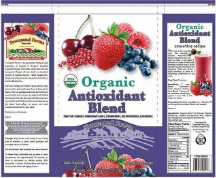The U.S. Centers for Disease Control and Prevention (CDC) said this week that it is still tracking hepatitis A cases throughout the country as part of its surveillance of a Hep A outbreak associated with Townsend Farms Organic Antioxidant Blend of berries and pomegranate seeds sold at Costco stores. Oregon-based Townsend Farms issued recalls of the frozen berry mix starting in early June, two months after the first illnesses were detected.
 As of July 15, there were 147 confirmed case patients from California, Colorado, Arizona and five other states. At least 63 of the Hepatitis victims were hospitalized. New illnesses were occurring as recently as July 1 and the CDC has not declared the Townsend Farms outbreak to be complete.
As of July 15, there were 147 confirmed case patients from California, Colorado, Arizona and five other states. At least 63 of the Hepatitis victims were hospitalized. New illnesses were occurring as recently as July 1 and the CDC has not declared the Townsend Farms outbreak to be complete.
Joint announcements by the CDC and FDA have indicated that the most likely vehicle for the hepatitis A virus appears to be a common shipment of pomegranate seeds from a company in Turkey, Goknur Foodstuffs Import Export Trading. These pomegranate seeds were used by Townsend Farms to make the Townsend Farms and Harris Teeter Organic Antioxidant Blends, but the outbreak illnesses relate to sales from Costco, not Harris Teeter, the CDC and FDA have said.
A food poisoning lawsuit against Townsend Farms and Costco has been docketed in U.S. District Court of Arizona, filed by hepatitis lawyer Fred Pritzker and his Bad Bug Law Team. Pritzker, whose legal team is continuing to accept additional case patients as clients in this outbreak, has raised tough questions about how the outbreak could have been prevented. The pomegranate seeds are from a part of the world where the hepatitis A virus, genotype 1B, is known to circulate, federal regulators said. Pritzker said part of his team’s investigation of the outbreak seeks to understand what testing, if any, went into a product that could be consumed raw.




